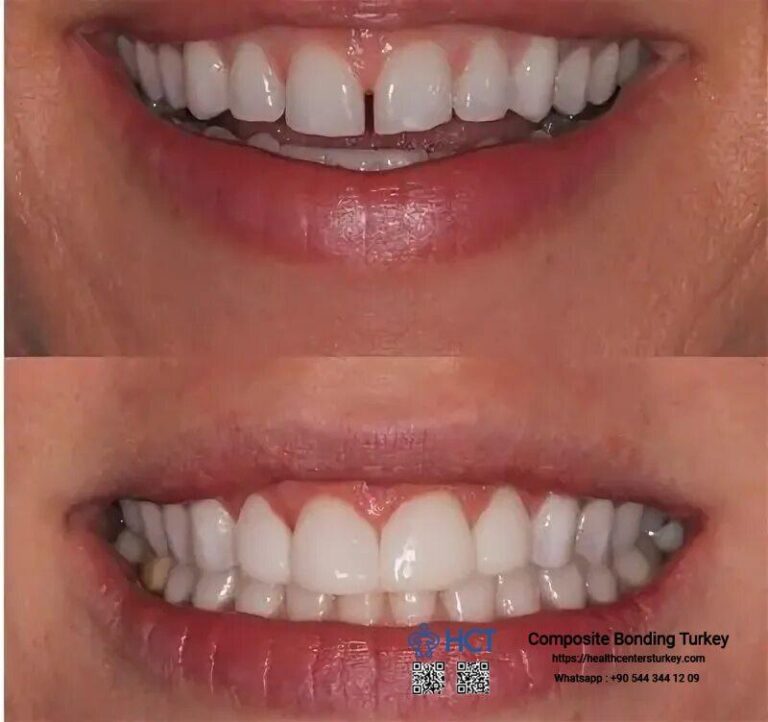Expert Dentists Providing High-quality Care in Turkey
Expert Dentists Providing High-quality Care in Turkey
Blog Article
Navigate Your Smile Transformation in Turkey
Dental implants have turn out to be a well-liked answer for those trying to replace missing teeth. Understanding how these implants can affect adjacent teeth is essential for anyone considering this process, as nicely as for dentists and specialists concerned in dental care.

One significant side is that dental implants are designed to be anchored into the jawbone, which suggests they are impartial of adjacent teeth. Unlike dental bridges, which regularly require the alteration of neighboring teeth, implants can fill the hole without compromising the health or structure of these surrounding teeth.
This independence helps keep the integrity of adjacent teeth. When a tooth is lost, there could be a natural tendency for neighboring teeth to tilt or shift into the empty house. Such motion can lead to misalignment, which might affect chunk and general oral health. By placing an implant, you successfully prevent this potential shift, promoting higher alignment in the long term.
Reliable Smile Alignment Solutions available in Turkey
Additionally, dental implants assist preserve bone density within the jaw. A natural tooth root offers stimulation to the encompassing bone, keeping it healthy and robust. When a tooth is missing, the bone can start to deteriorate as a result of lack of stimulation. With a dental implant mimicking a natural root, bone loss may be minimized, which indirectly benefits adjacent teeth by preserving the general structure of the dental arch.
While dental implants are advantageous, improper placement can impact neighboring teeth. If an implant is positioned too shut to a different tooth, it might exert undue stress on that tooth, leading to discomfort or potential harm. Proper planning and imaging techniques are important for avoiding such issues.
Embrace Your Oral Health Improvement in Turkey
Moreover, sustaining good oral hygiene is crucial after receiving an implant. If not correctly cleaned, surrounding teeth may turn out to be prone to dental issues corresponding to decay or gum disease. This underscores the importance of diligent oral care following the process to make sure both implants and adjacent teeth stay healthy.
Regular dental check-ups are also important for monitoring the health of surrounding teeth. Dentists can identify any shifts or potential problems early, permitting for well timed interventions. This proactive approach ensures that each the implant and adjacent teeth can coexist with out complications.
All You Need to Know about Dental Tourism in Turkey
Another consideration is the impression of implants on bite drive. When a single tooth is missing, the load of chewing may shift to adjacent teeth, probably resulting in wear or strain. Implants restore correct chunk dynamics by redistributing forces in the mouth, which might protect surrounding teeth from undue stress.
Some patients might elevate concerns concerning the appearance of dental implants. Well-placed implants can mix seamlessly with existing teeth, enhancing general aesthetics. In distinction, failing to replace a missing tooth can lead to aesthetic points, together with collapsing of facial structure and changes in smile dynamics.
It's also value discussing the psychological features of dental health. Experiencing tooth loss can adversely affect one’s vanity and willingness to interact socially. By restoring your smile with implants, you'll find a way to positively influence not only your oral health but in addition your emotional well-being.
Long-term success of dental implants usually hinges on various factors, including the patient's health, maintenance habits, and the standard of the preliminary process. If adjacent teeth are wholesome and correctly cared for, the chances are they will continue to thrive alongside the implants.
Luxury Oral Care Solutions for International Clients in Turkey
In conclusion, dental implants play a vital function in not simply restoring individual smiles, but in preserving the health and structure of adjacent teeth. By preventing shifting, maintaining bone density, and redistributing chew forces, implants can make certain that surrounding teeth remain in optimal condition. Proper placement, hygiene, and regular dental visits can further enhance the benefits of dental implants, leading to a healthier, more confident smile for years to come.
- Dental implants can help keep the alignment of adjacent teeth by providing a stable anchor, stopping adjacent teeth from shifting into the hole left by a missing tooth.
- The presence of an implant might stimulate bone progress in the jaw, helping to preserve the overall structure and integrity of the adjacent teeth.
- Unlike traditional bridges, implants do not require alteration of surrounding teeth, thus preserving their power and anatomy.
- Implants can enhance the distribution of bite forces evenly throughout the dental arch, lowering the stress on neighboring teeth throughout chewing.
- A well-integrated dental implant can decrease the chance of bone loss within the area surrounding adjacent teeth, contributing to their long-term health and stability.
- The aesthetics of adjacent teeth could be improved because of the support provided by implants, which can lead to higher total beauty outcomes.
- With proper placement, dental implants can prevent gum recession around adjacent teeth by maintaining adequate dental structure.
- Implants may help mitigate the risks of periodontal disease in close by teeth by promoting healthy gum tissue and offering a washable floor.
- Long-term success of dental implants can lead to improved oral hygiene routines, which in turn advantages the health of surrounding teeth.
- The improved practical ability of an implant can encourage patients to chew more effectively, thus rising saliva manufacturing and aiding in the protection of adjacent dental tissues.undefinedHow do dental implants affect adjacent teeth?
What are dental implants and the way do they interact with adjacent teeth?undefinedDental implants are artificial tooth roots that are surgically positioned into the jawbone. They provide a steady basis for replacement teeth while ensuring minimal disruption to adjacent teeth, preserving their integrity and alignment. Premier Dental Clinics Specializing in Veneers in Turkey.
Affordable Veneers at Top Clinics in Turkey
Can dental implants trigger problems for close by natural teeth?undefinedGenerally, dental implants do not hurt adjacent natural teeth. However, if the implant isn't placed correctly or if there’s insufficient oral hygiene, it might lead to issues similar to adjacent tooth decay or gum disease.

Will getting a dental implant change the means in which my adjacent teeth feel?undefinedMost sufferers report no change within the sensation of adjacent teeth after visit here implant placement. However, it could take a while to regulate to the presence of the implant, much like how one might adapt to different dental restorations.
Can dental implants help preserve the health of adjacent teeth?undefinedYes, dental implants can help maintain the health of adjacent teeth by preventing bone loss that may happen after tooth loss. This preservation helps the alignment of close by teeth, decreasing the risk of shifting or misalignment.
Enjoy Exceptional Dental Treatments in Turkey at Competitive Prices
Do I need to modify adjacent teeth when getting an implant?undefinedTypically, adjacent teeth do not want alteration when placing an implant. This is likely one of the advantages of dental implants over traditional bridges, which often require reshaping adjacent teeth for support.
How does the therapeutic means of an implant have an result on close by teeth?undefinedThe healing course of involves osseointegration, where the implant fuses with the jawbone. During this time, adjacent teeth remain unaffected and retain their function, though it’s important to observe post-operative care recommendations. Cost-Efficient Smile Makeovers found in Turkey.
Remarkable Oral Care Treatments Available to International Patients in Turkey
Can dental implants lead to bone loss round adjacent teeth?undefinedIf dental implants are positioned properly and cared for adequately, they need to not result in bone loss around adjacent teeth. In fact, they may help stimulate bone progress, combating the natural bone loss that often follows tooth extraction.
What precautions ought to I take to protect adjacent teeth after getting an implant?undefinedRoutine dental hygiene, together with brushing and flossing, together with regular dental check-ups, next page is essential. Avoiding exhausting foods and following your dentist’s aftercare directions will also defend both the implant and adjacent teeth.
Is it frequent for adjacent teeth to shift after an implant is placed?undefinedIt's not typical for adjacent teeth to shift after an implant placement, particularly when the implant is placed appropriately and maintained properly. If there’s any motion, it may be because of other underlying points that ought to be evaluated by a dental skilled. Report this page